
Audio Version (Press Play & Scroll Seamlessly Through the Article ▶️🎶)
As a symbol of divination, tarot cards have long been cloaked in a robe of mystery and intrigue.
To some, tarot cards are fun, even fascinating, part of popular culture. To others, they're powerful spiritual tools that can offer deep insights into our lives and our personal journeys.
But then, there are those who label tarot cards as BS and just a bunch of hocus pocus or even see tarot cards as something darker. They associate the cards with the occult, with practices that they believe delve into the realm of the forbidden. In these circles, tarot cards are seen as tools that meddle with fate or open up channels to negative energies.
And it's this perception that fuels the age-old question: Are tarot cards evil?
You see, when people label tarot cards as "evil", it's often because they fear the unknown. Anything that offers a peek into the future or delves into the depths of our psyche can be intimidating. Plus, tarot cards' association with the supernatural, with readings often taking place in dimly lit rooms amidst a sea of incense smoke, doesn't exactly help to dispel these notions.
We fear what we don't understand, it's human nature. So, let's dig deep into the world of tarot and try to answer the questions, “Are tarot cards evil?” “Are tarot cards BS?” Or, are they simply misunderstood?
Table of Contents
- Historical, Cultural Context and Controversy
- Understanding Tarot Cards: Beyond Good and Evil
- Are Tarot Cards Evil?
- Are Tarot Cards BS?
- Personal Beliefs, Perspective and Interpretation
- Is Using Tarot Cards Spiritually Reckless or Dangerous?
- Last Words
Historical, Cultural Context and Controversy
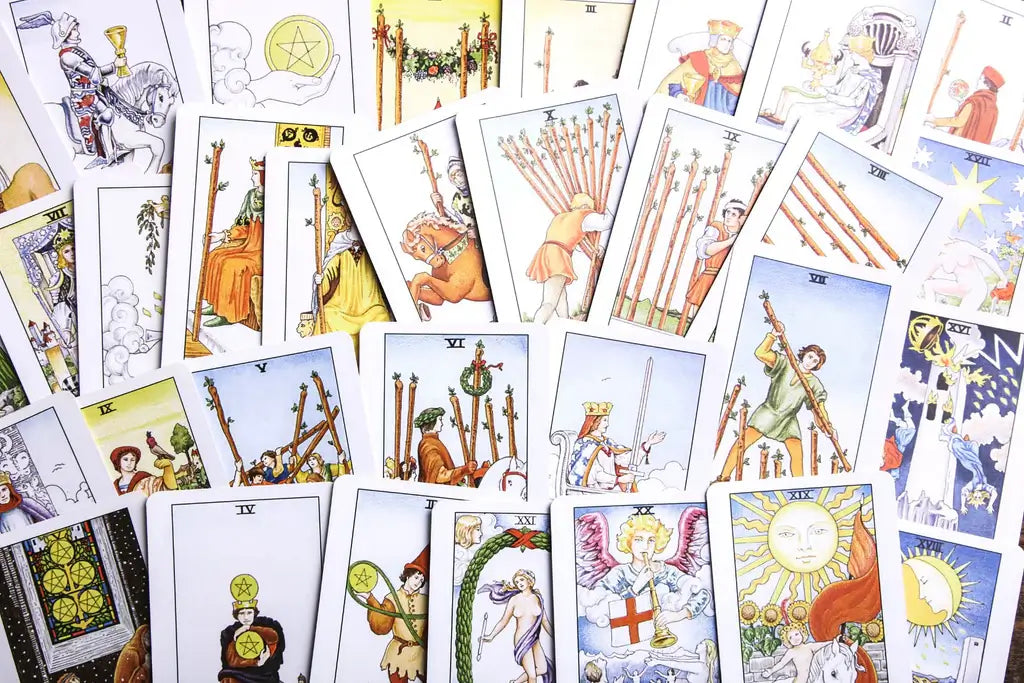
Rewind back to the mid-15th century, when tarot cards first made an appearance. Back then, these cards weren't associated with mysticism or the occult, not at all. They were actually used as playing cards! Just imagine – folks gathered around a table, jovially playing games with the precursor to our modern-day tarot.
It was only in the 18th C that tarot cards took on a more mystical role, and started being used as divination tools. The symbolism and intricate designs we associate with tarot today started to take form.
As for the various cultural influences, well, they're as varied as the cards themselves. Tarot is like a beautiful patchwork quilt of diverse cultural threads.
- You've got the spiritualistic leanings of the 19th-century French occultist Eliphas Levi
- The philosophical ideas of the Hermetic Order of the Golden Dawn in late 19th century England
- And more recently, the influences from New Age thinking.
Each culture, each era, each influencer has added their own unique stitch to the fabric of tarot, shaping and transforming how these cards are interpreted and used.
But, just because something is associated with the occult, doesn't make it evil. After all, 'occult' just means 'hidden' or 'secret'. It refers to knowledge that's not available to everyone, not necessarily something nefarious.
Yet, in spite of their rich historical tapestry, tarot cards have always been steeped in controversy. With their connection to spiritual and occult practices, they've often been viewed with suspicion and, sometimes, outright fear.
Understanding Tarot Cards: Beyond Good and Evil
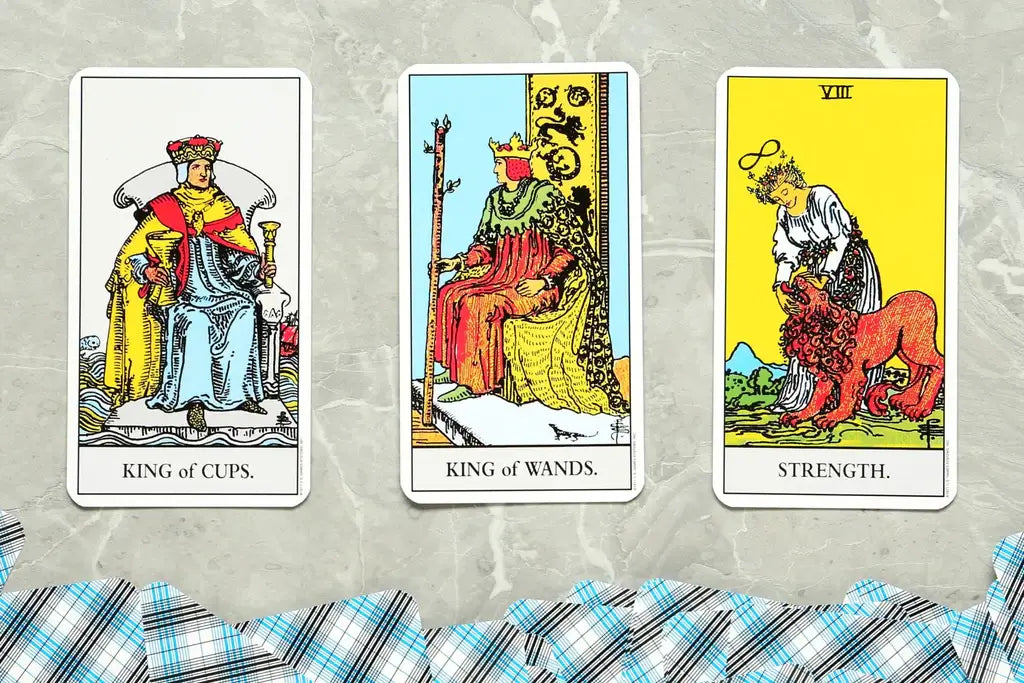
To answer the question "Are tarot cards evil?", we've got to understand what tarot cards actually are.
Tarot cards are, fundamentally, a deck of cards. They're made up of 78 cards, divided into:
- The Major Arcana (22 cards that represent life's karmic and spiritual lessons) and
- The Minor Arcana (56 cards that reflect the trials and tribulations we experience on a daily basis)
The Minor Arcana
- The Minor Arcana is further divided into four suits, just like a regular deck of playing cards.
- But instead of hearts, diamonds, clubs, and spades, we have cups, pentacles, swords, and wands.
- Each suit corresponds to a different element and represents various aspects of life.
- Cups deal with emotions and relationships, pentacles with material matters, swords with challenges and conflicts, and wands with growth and creativity.
Picture a tarot reading - the cards are shuffled and then drawn by the reader, who then interprets the cards based on their positions and the symbols present.
In essence, a tarot reading is a conversation with the subconscious, an exploration of the self, guided by the symbolism of the cards. It's about introspection and gaining insight, not about predicting a fixed future or meddling with dark forces. The power of tarot lies not in the cards themselves, but in their interpretation.
So, are tarot cards inherently evil? When you look at them as symbolic tools for introspection and understanding, it's difficult to justify that label. After all, they're as good or evil as the intentions of the person using them.
Are Tarot Cards Evil?
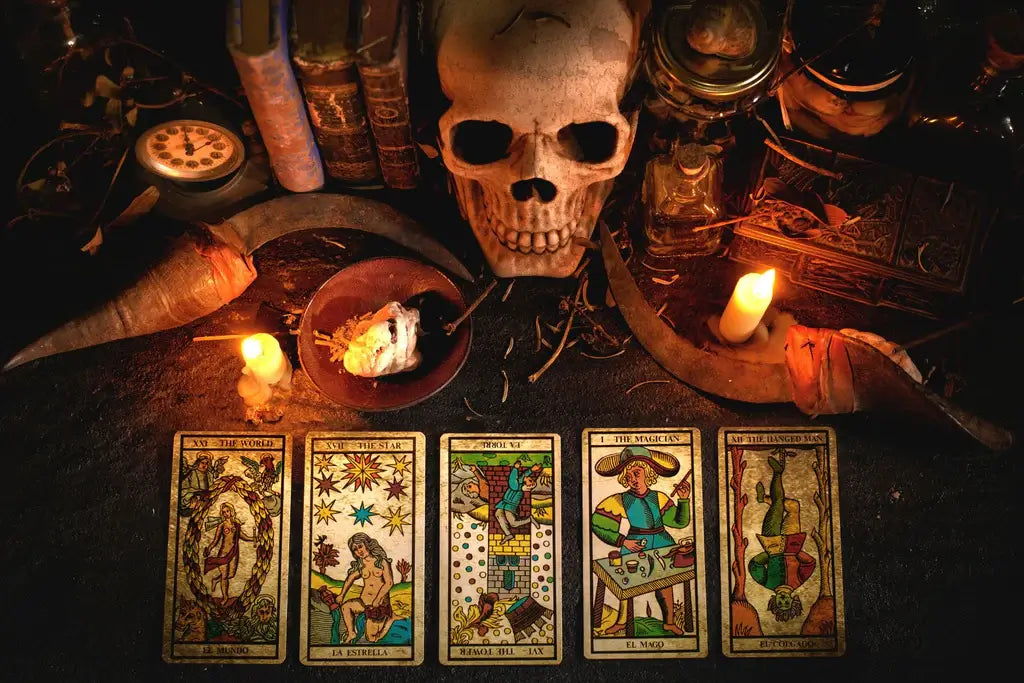
From my experience and understanding, tarot cards serve as a mirror. They reflect our subconscious thoughts, feelings, and desires, helping us to understand ourselves and the world around us in ways we might not have thought of before. In essence, they're tools of insight, introspection, and guidance.
When you're trying to untangle a complex thought or feeling, sometimes all you need is a different perspective, right? Tarot cards offer just that. They provide a new lens to view our inner workings, helping us unravel complexities and navigate life's challenges.
But like any tool, tarot cards can be misused or misunderstood. For instance, some might use tarot cards to exploit others, feeding on their fears or insecurities for personal gain. That's not what tarot is about, but unfortunately, it's such instances that contribute to the perception of tarot cards as being 'evil'.
And then, there's the fear of the unknown, of the future. Tarot cards, being associated with divination, sometimes get a bad rap because they're seen as meddling with destiny, unlocking doors that should remain closed. But remember, a tarot reading isn't about revealing a set-in-stone future. It's about showing potential paths, encouraging introspection, and guiding decisions.
It's also key to separate the tool from the person using it. It's the intention and the usage that determines whether something becomes a tool for insight or gets misused as an 'evil' practice.
Are Tarot Cards BS?
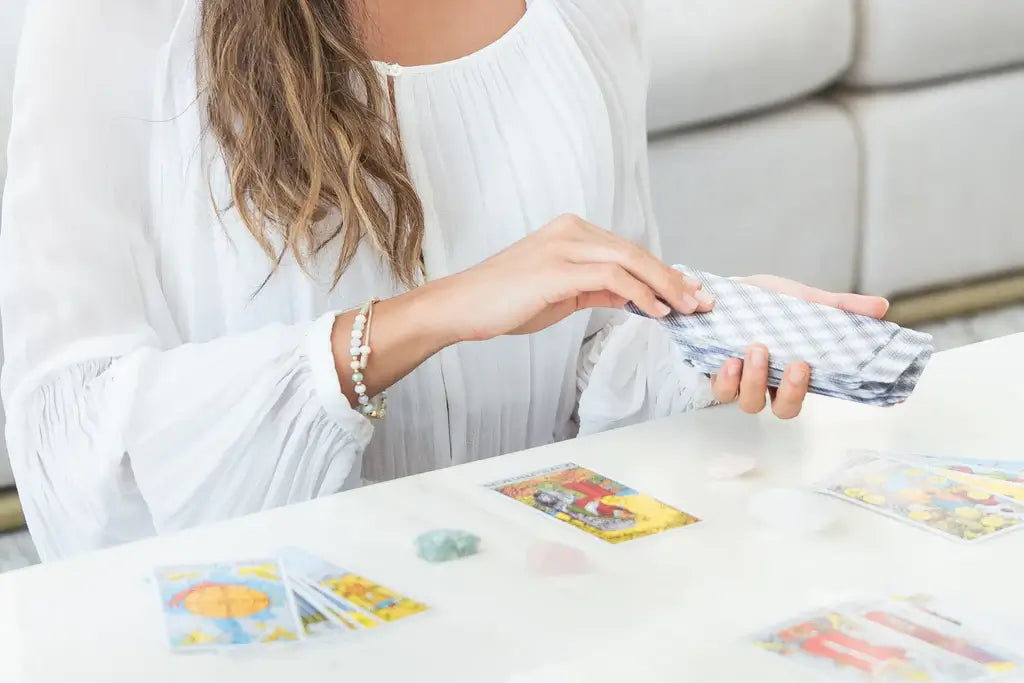
Another valid question that usually pops up, especially in our increasingly skeptical and scientifically-oriented society is…
Are tarot cards BS, or is there something more to them?
Like many things in life, the answer isn't always as easy or clear as it might seem. It largely depends on your perspective.
From a strictly scientific point of view, tarot cards might seem like a bunch of hocus pocus. After all, there's no empirical evidence proving that tarot cards can predict the future or reveal hidden truths.
But...tarot cards aren't necessarily about predicting the future.
At their core, tarot cards are a tool for introspection and personal growth. They're a way to tap into the subconscious, to spark your imagination, and to encourage you to view life and your circumstances and situations from different angles. In this sense, tarot isn't BS at all. It's a psychological tool, much like journaling or therapy.
Sure, there will always be charlatans and scammers who use tarot cards as a way to exploit others. But this isn't a reflection of tarot itself. It's just a reflection of how some individuals choose to use (or misuse) this tool.
So, are tarot cards BS? If you're looking for hard, scientific proof of their mystical powers, then you might be disappointed. But if you're open to using tarot as a tool for self-reflection and personal growth, then you might just find that there's more to these cards than meets the eye.
Remember, the truth isn't always about what's empirically provable. Sometimes, it's about what resonates with you and helps you navigate your own unique journey through life.
Personal Beliefs, Perspective and Interpretation
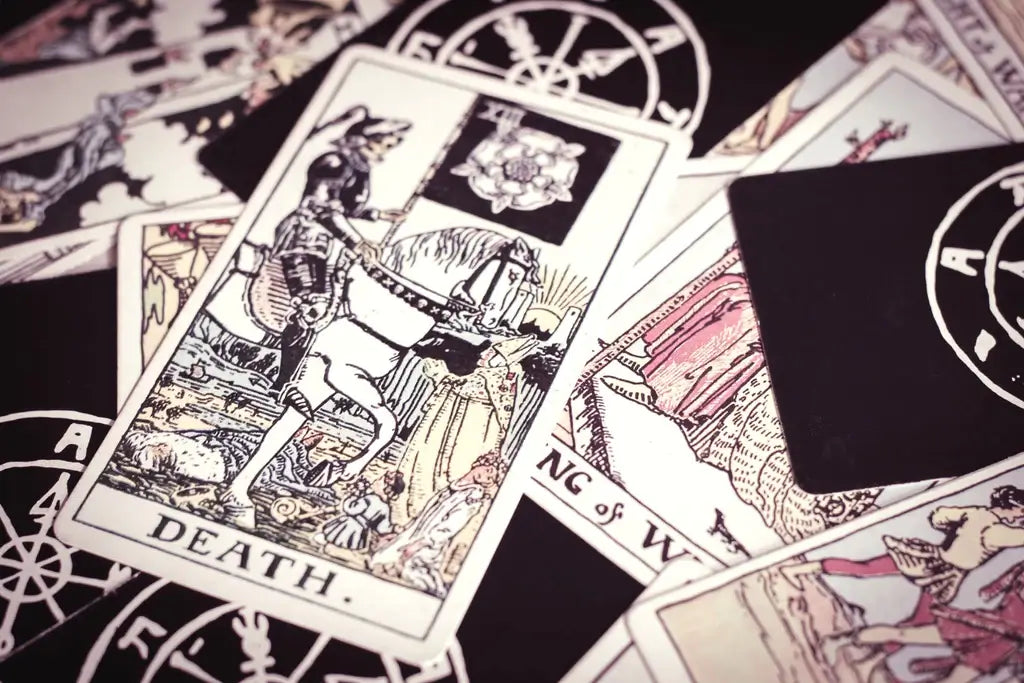
Personal beliefs, cultural contexts, and how we interpret things can significantly shape our view on whether tarot cards are BS, evil, good, or somewhere in between.
Let's dive into that a bit.
Say that you were raised in a culture or household where anything remotely connected to the occult was seen as 'taboo' or 'evil'. In this case, tarot cards, with their mystical symbolism and ties to divination, might be seen as something dark or dangerous.
Alternatively, if you come from a background where exploring the subconscious and the metaphysical is accepted or even celebrated, tarot cards might be seen as a powerful tool for personal growth and understanding.
It's all about perspective.
And then there's interpretation. The way we interpret the images and symbols on tarot cards can greatly influence our perception of them.
For instance, the Death card in a tarot deck is often feared because, well, it's called "Death". But in reality, this card signifies change or transformation, not literal death. See how interpretation can change everything?
Personal beliefs and interpretation can transform tarot cards from being seen as 'evil' into neutral or even positive tools for introspection and guidance.
- Is the glass of water half empty?
- Is it half full?
- Or is it just a glass with some water in it?
It depends how "you" choose to see it.
Ultimately, remember that tarot cards, like many things in life, aren't inherently good or evil. They're tools, and the morality we attribute to them often says more about us than the cards themselves.
Is Using Tarot Cards Spiritually Reckless or Dangerous?
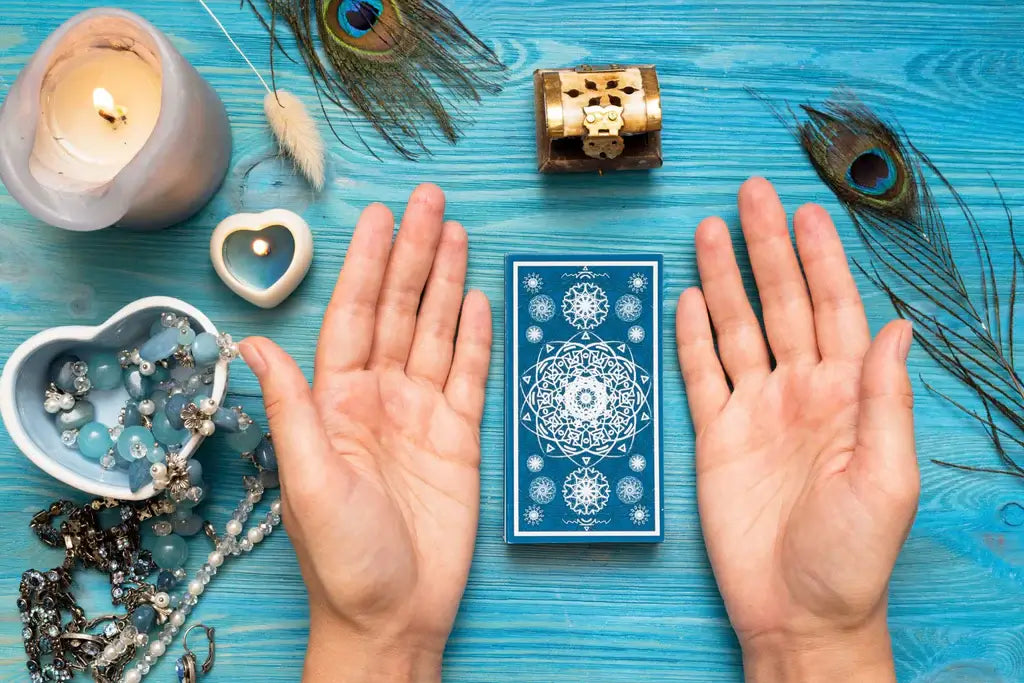
That's quite a loaded question, isn't it?
To tackle this, let's first agree that spirituality is a deeply personal journey. It's unique to each individual, shaped by our beliefs, experiences, and perspectives. What one person might see as spiritually enriching, another might view as spiritually reckless or dangerous.
This holds true for tarot cards as well. Some people might view tarot as a form of spiritual exploration, a way to engage with their subconscious, seek guidance, or connect with higher spiritual realms. To them, tarot is a tool that aids their spiritual journey, offering insight and clarity.
However, there are those who see tarot in a different light. They might believe that tarot cards can open up channels to negative or harmful energies, disrupting one's spiritual balance. This view is often held by individuals who subscribe to certain religious beliefs or who have a specific understanding of spiritual safety.
Also, sometimes the fear or apprehension associated with tarot cards can stem from a misunderstanding or misuse of the tool. For example, the notion that tarot cards can predict an unchangeable future or that they can control one's destiny or ruin your life can create unnecessary fear and concern.
It's important to remember that tarot cards, in and of themselves, are neutral. They are tools. If used with respect and understanding, they can aid in personal and spiritual exploration. If used recklessly, without a proper understanding of their purpose or significance, they could potentially lead to confusion or distress.
But, and this is a big 'but', the power of tarot doesn't lie in the cards themselves. It's in the hands of the reader - in their intention, their interpretation, and their interaction with the cards.
So, is using tarot cards spiritually reckless or dangerous? That depends on how they are used and the individual's own spiritual beliefs and practices - a good dose of respect, understanding, and discernment goes a long way.
Last Words
So, are tarot cards evil? Are they just BS? Or are they insightful tools for self-discovery? Well, the answer isn't necessarily black or white. It's a spectrum of grays, a multitude of hues, all based on perspective, interpretation, and intention.
To some, tarot cards may seem evil because of their association with the occult or because of negative experiences. Others may dismiss them as nonsense, attributing any accuracy in readings to chance or generalization.
Yet, there are also those who see tarot cards as valuable tools for introspection and guidance. To these individuals, tarot isn't about predicting a set future or meddling with dark forces, but about exploring the subconscious, understanding the self, and navigating life's challenges.
Tarot cards, like any tool, are inherently neutral. It's how they're used and interpreted that gives them their character. They can be as evil, as benign, or as enlightening as we perceive them to be. And that says more about us than it does about the cards.
Whenever you're ready, there are 4 ways I can help you:
1. Tridevia Tarot Deck: Join hundreds of cosmic explorers and spiritual enthusiasts in discovering the Tridevia Golden Foil 78-Card Tarot Deck, featuring enlightening affirmations in a luxurious collector’s box. Embark on a transformative journey of self-discovery and divine guidance.
2. Enlightening Tarot Courses: Join our vibrant community of spiritual seekers and take our Tridevia Tarot Deck courses. Tranform your life and elevate your readings with Tarot Meditations, Manifesting Daily, Creating Flow and Wealth, Unlocking Fertility and more.
3. FREE Mystical Tarot Guide: Yours for Free! This guide will help you master 78 cards in any deck and discover unique spreads for profound insights.🎁
4. Calmoura Tarot Academy: Follow our YouTube channel for eye-opening insightful videos and everyday tarot inspiration to help rewire your brain and change your life.